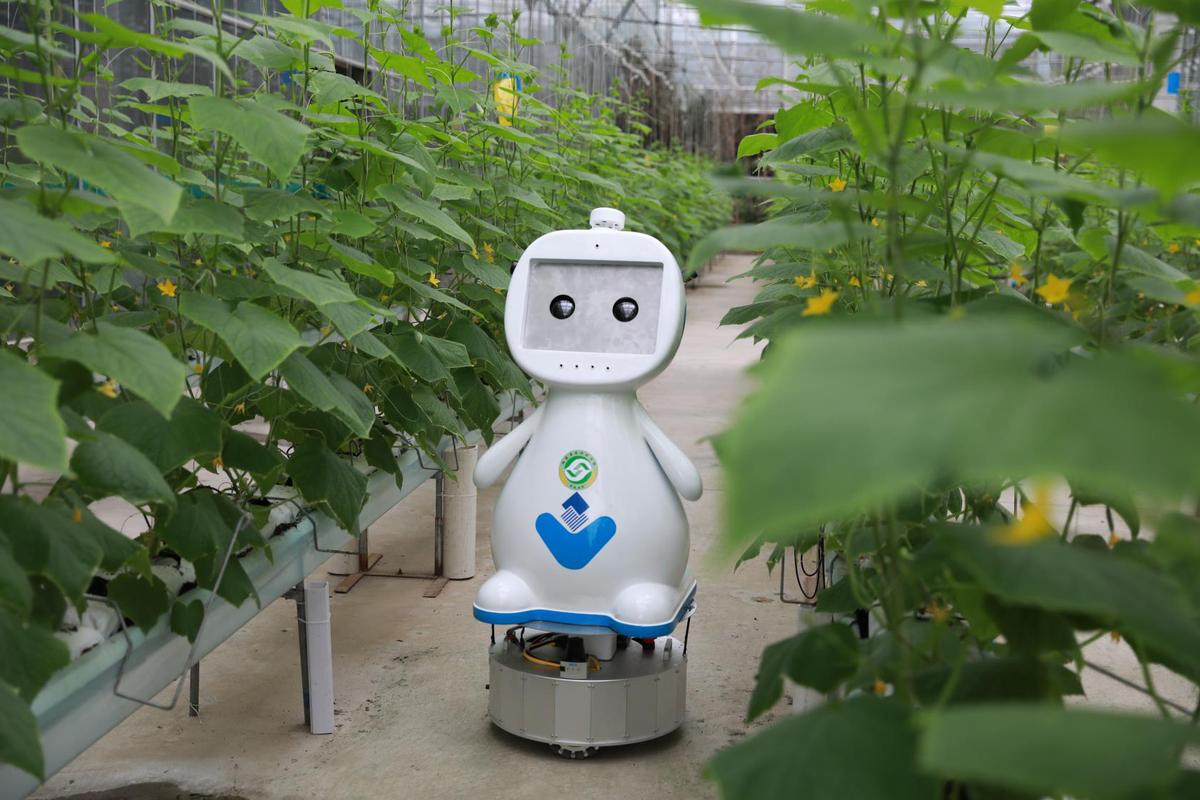In recent years, China has been at the forefront of integrating advanced technologies into various sectors, with agriculture being a significant beneficiary. The development of AI agricultural robots marks a transformative step in modern farming, aiming to enhance efficiency, precision, and sustainability.
The Emergence of AI Agricultural Robots
At the heart of this agricultural revolution is the AI agricultural robot developed by researchers at Fudan University. This intelligent machine is designed to perform complex tasks such as pollination, leaf pruning, fruit thinning, and harvesting, all with remarkable precision. Equipped with 3D vision, autonomous navigation, and cloud-based decision-making capabilities, the robot mimics human perception and actions in the field.
The robot's development journey began in 2021, focusing on addressing the challenges of automating delicate agricultural tasks. Through multidisciplinary collaboration involving experts in optics, materials science, and mechanical engineering, the team successfully created a bionic arm capable of handling tasks that were previously difficult for machines to perform. After four generations of prototypes and rigorous testing, the current model boasts over 90% success in pollination, even under challenging environmental conditions.
Enhancing Efficiency and Reducing Labor Dependency
The implementation of AI agricultural robots significantly reduces the reliance on manual labor in farming. In field trials conducted at Bright Food Group's farm in Chongming, a single robot was able to replace the workload of six human workers. This shift not only addresses labor shortages but also allows for continuous operation without fatigue, leading to increased productivity and efficiency in agricultural practices.
Moreover, the robots are integrated with China's BeiDou Navigation Satellite System, enabling precise field navigation and task execution. Farmers can operate these robots remotely via smartphones, allowing for real-time monitoring and control. This technological advancement empowers farmers to manage larger areas with greater accuracy and less physical strain.
Broader Implications for Sustainable Agriculture
The adoption of AI agricultural robots aligns with China's broader goals of promoting sustainable and smart agriculture. By automating tasks such as targeted pesticide application and precise harvesting, these robots minimize resource wastage and environmental impact. Additionally, the integration of big data and IoT technologies facilitates informed decision-making, optimizing crop yields and reducing the carbon footprint of farming activities.
The success of these robots in pilot programs has garnered significant interest from the agricultural industry, indicating a promising future for widespread adoption. As technology continues to evolve, AI agricultural robots are poised to become an integral part of modern farming, contributing to food security and environmental sustainability.
Read More






 Sunday, 01-03-26
Sunday, 01-03-26







